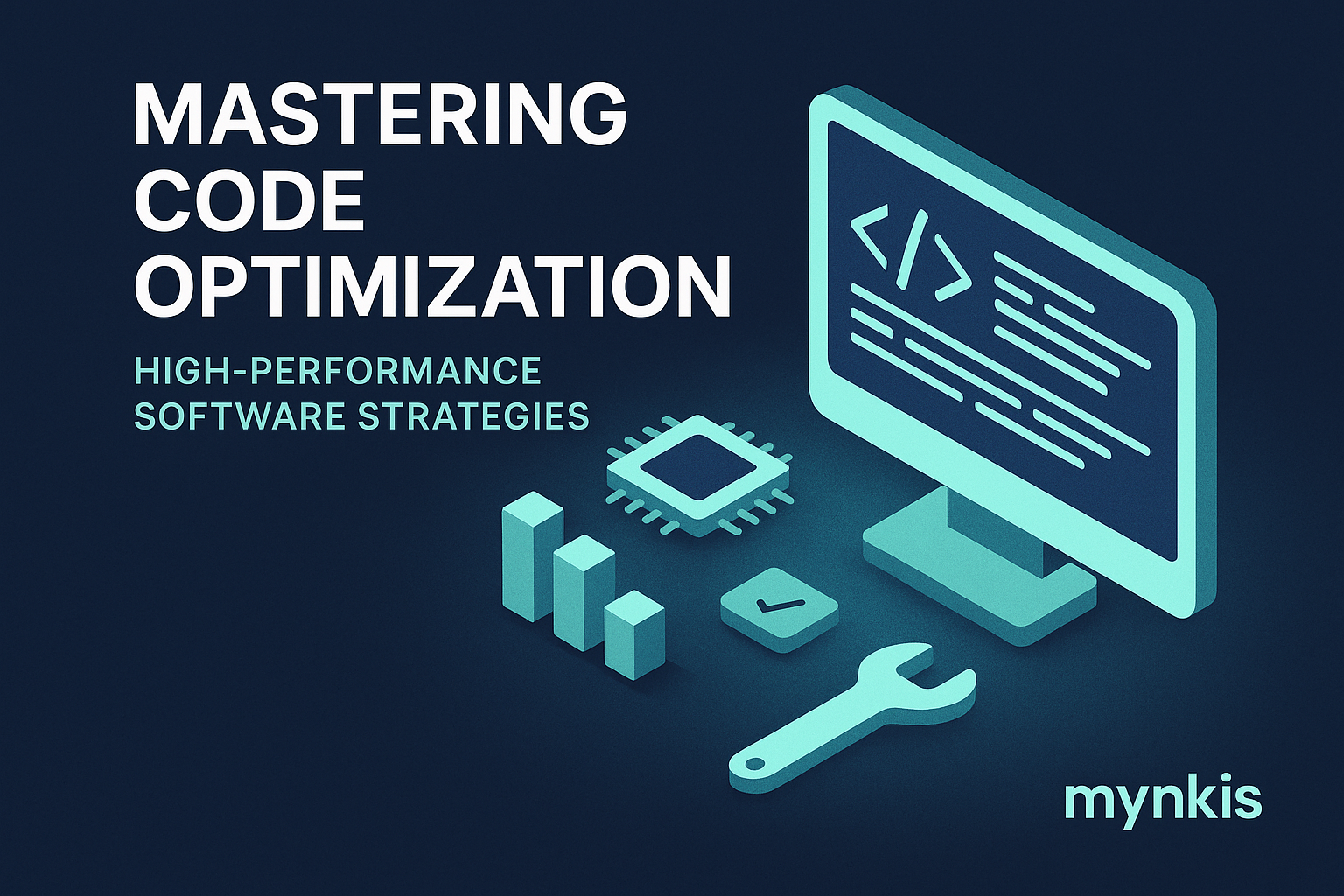Schedule a Demo
Code optimization isn't just about making your software run faster; it's about crafting an experience that feels seamless to the user. In my work with founders, I've seen firsthand how optimized code can turn a good software product into a great one. When code is efficiently written, it not only performs better but also becomes more maintainable, easier to scale, and crucially, more cost-effective in the long run.
To effectively optimize your code, you need to understand what you're measuring. Key performance indicators like response time, memory usage, and CPU cycles are your guide. Response time, in particular, is critical for user satisfaction—every millisecond counts. By setting clear performance goals, you align your development efforts with the real-world impact on your users' experience.
Choosing the right algorithms is paramount for code optimization. A well-chosen algorithm can make all the difference in execution speed and resource consumption. For instance, swapping out a bubble sort for a quicksort in your application can dramatically improve performance when dealing with large datasets. As highlighted in the Algorithms Illuminated series, understanding the time and space complexity of your algorithms is key.
Data structures significantly influence how efficiently your software can operate. Selecting the right data structure, like using a hash table instead of an array for quick lookups, can streamline data retrieval and storage. In my consultations, I often emphasize how a slight tweak in data organization can yield enormous performance gains.
Memory usage is another crucial aspect of optimization. Efficient memory management ensures that your application doesn't bog down the system. Techniques like lazy loading, where data is only loaded when needed, help keep memory usage lean. It's also wise to scrutinize your objects' lifecycles and clear up unused variables promptly to prevent memory leaks.
Modern software must often leverage multiple cores or threads to achieve peak performance. Implementing parallelism or concurrency can significantly enhance your application's capabilities. However, this approach requires careful planning to avoid issues like race conditions or deadlocks. As Eric Brewer noted in his talk on CAP theorem, the balance between performance and consistency is something developers must always consider.
Caching strategies can dramatically improve your software's speed. By storing commonly accessed data in memory, you can cut down on time spent fetching data from slower storage systems. Whether it's server-side caching like Redis or client-side techniques such as browser caching, implementing a smart caching system is often one of the fastest ways to boost application performance.
A database that's optimized can be the difference between a sluggish app and a snappy one. Indexing, query optimization, and efficient database design all play critical roles. As an example, in working with a client on a SaaS platform, we drastically reduced their load times by restructuring their queries and ensuring proper indexing—a testament to the power of database optimization.
When dealing with applications that communicate over networks, optimization is key. Techniques like data compression, efficient API design, and minimizing HTTP requests can help. I recall a case where reducing the number of API calls by merging endpoints directly contributed to a smoother user experience—a clear demonstration of the impact network optimization can have.
Profiling tools give you a detailed look at where your code is spending its time. By understanding these bottlenecks, you can target your optimization efforts where they'll have the most effect. Tools like New Relic or Google's Performance Profiler offer insights that are invaluable for any serious software development project.
Refactoring is a delicate art—it's about improving the structure without altering functionality. It often leads to more efficient code. Through years of project iterations, I've learned that incremental refactoring paired with regular code reviews keeps the codebase not only performant but also easier to maintain over time.
While the quest for performance is important, it should not come at the expense of code readability. Over-optimization can lead to complex, hard-to-understand code. Instead, aim for a balance where efficiency and maintainability coexist harmoniously. In numerous projects, I've strived to ensure that any optimizations made are done with clear documentation and follow established coding standards.
Modern software development practices like continuous integration and delivery (CI/CD) enable you to optimize and deploy code faster and more reliably. Utilizing tools such as Jenkins or GitHub Actions can streamline your development process, allowing for swift feedback loops and immediate performance enhancements.
As technology evolves, so too must your approach to optimization. Keeping up with trends in areas like cloud computing, serverless architectures, and machine learning can provide new opportunities for performance gains. I always encourage founders to stay informed and explore how new technologies might benefit their software's performance.
Code optimization is an ongoing journey, not a destination. It requires vigilance, expertise, and a commitment to continuous improvement. By implementing the strategies discussed here, you're setting your software up for success—delivering a high-performance product that meets the needs of today's digital economy.
